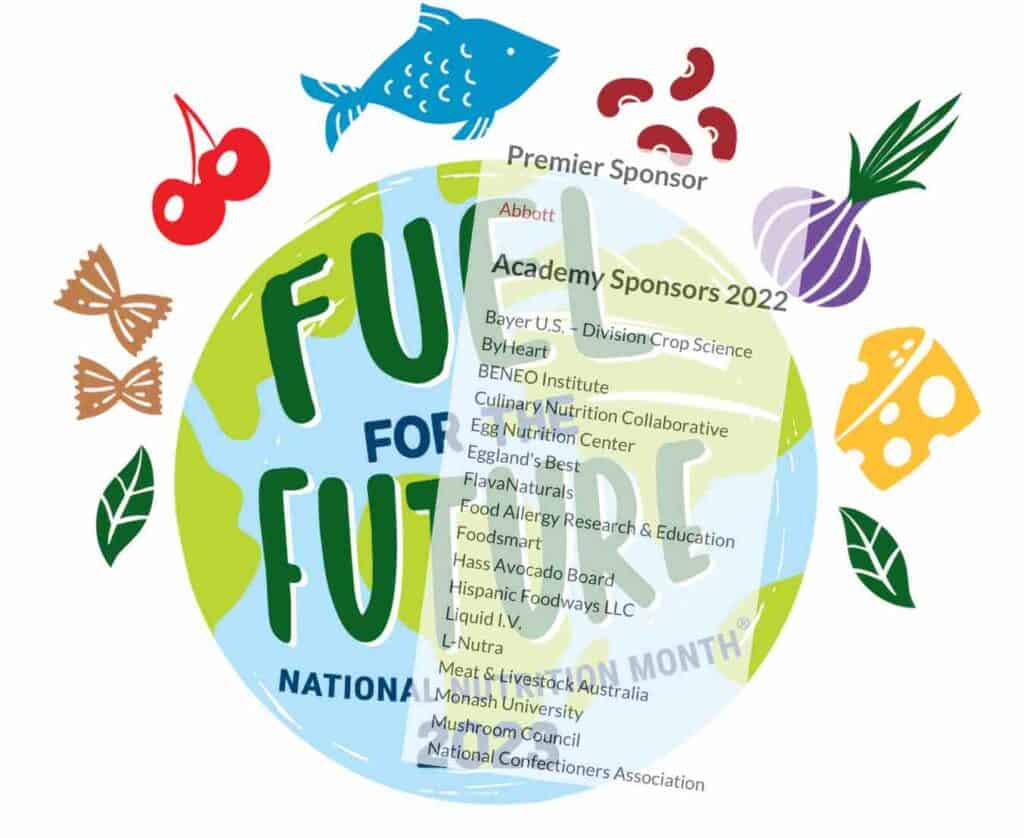The Academy of Nutrition and Dietetics is celebrating the 50th anniversary of “National Nutrition Month” this March. The influential Academy, which counts more than 100,000 credentialed dieticians, nutrition practitioners and students among its ranks, launched the Nutrition Month campaign in 1973 to “encourage sound eating and physical activity habits.” This year’s theme is “Fuel for the Future,” with a focus on environmental sustainability.
The Academy’s Big Food-friendly Nutrition Month messaging leaves us craving science-based advice for healthy eating. The group offers a few useful morsels and light fare in its Nutrition Month messaging, such as “buy foods in season and shop locally when possible” and “learn cooking and meal preparation skills.” But what you won’t find there: substantive dietary advice that reflects the latest science, such as warning consumers about the health risks of eating ultra-processed foods that are linked to increasing rates of cardiovascular disease, diabetes, weight gain and obesity, dementia, and – most alarmingly – all cause mortality.

The large body of research on the risks of ultra-processed foods is missing from the Academy’s Nutrition Month materials, nor do they inform consumers about the findings of a long-term study published this month in Lancet Planetary Health: “Replacing 10% of processed foods … with an equal amount of minimally processed foods was associated with reduced risks of overall cancer, head and neck cancers, oesophageal squamous cell carcinoma, colon cancer, rectal cancer…”
Are the Academy’s financial ties with ultra-processed food companies preventing the group from giving consumers nutrition advice that could save lives? It appears so.
The influential Academy goes light on the problem of sugar consumption and doesn’t explain how added sugars can drive nutrient and energy depletion. It doesn’t advise consumers to stop drinking sugary sodas or eating candy. And it fails to mention the health risks associated with artificial sweeteners, such as aspartame and sucralose, or the pesticides commonly found in conventionally grown fruits and vegetables (and in most of our bodies).
These examples suggest the Academy may be more focused on serving up favors to its corporate sponsors than sharing the best science-based nutrition advice with its audience.
Who are the Academy’s corporate funders?
These omissions of fact-based, substantive advice for healthier eating are unsurprising given recent research into the Academy’s finances and policies.
The Academy’s top recent funders include the National Confectioners Association, which represents the candy industry; Bayer CropScience, a leading manufacturer of toxic pesticides; and Tate & Lyle, which manufactures sugar and Splenda sucralose, an artificial sweetener linked to leukemia, weight gain, obesity, diabetes and other illnesses.
A 2022 study published in Public Health Nutrition, co-authored by public health scholars and U.S. Right to Know, found that the Academy has a “symbiotic relationship” with its corporate funders and that it acts as a “pro-industry voice” with policy positions that sometimes clash with its mission to improve health. The study found that the Academy accepted over $15 million in corporate funding over a six year period, from companies and industry groups including the National Dairy Council, Abbott Nutrition (recently in the news for its “shocking” and “egregiously unsanitary” conditions), Conagra, PepsiCo, Coca-Cola, Hershey’s and General Mills.
What does the Academy give its sponsors in return?
The recent study, based on a five-year investigation and tens of thousands of pages of internal documents U.S. Right to Know obtained through public records requests, reported that the Academy appears to allow quid pro quo purchases of “rights and benefits” by corporate sponsors.
Internal communications reveal that the Academy “distinguishes its ‘sponsors’ from its ‘supporters.’ Corporate sponsors ‘pay a fee, and in return the Academy provides a right or a benefit’ … Corporate ‘supporters‘ provide ‘a charitable contribution with no (explicit) expectation of a commercial return.’”
The Academy’s involvement with corporations goes beyond sponsorships; they have also invested in some of the leading ultra-processed food brands. For example, the study found that the Academy held stocks in Nestle and PepsiCo. They also invest in pharmaceutical companies including Abbott, Johnson & Johnson, Perrigo Co, Pfizer Inc., Allegra and Merck & Co.
All these financial ties raise concerns that the Academy is more concerned with providing PR cover for the ultra processed foods and related industries that finance it than providing the best dietary and nutrition advice for our health. The Big Food-friendly advice the Academy is serving up for the 50th annual Nutrition Month compounds these worries. The Academy’s 100,000 members and the public deserve better.
More information
Read the recent study: The corporate capture of the nutrition profession in the USA: the case of the Academy of Nutrition and Dietetics
See our fact sheet: Academy of Nutrition and Dietetics: Corporate capture of the nutrition profession
News coverage:
- Guardian: Revealed: group shaping US nutrition receives millions from big food industry, by Tom Perkins (12.9.22)
- MedPage Today: Nutrition Group Has Close Ties to Food, Pharma Companies, — Analysis reveals a ‘symbiotic relationship’ between nutrition group and industry, by Michael DePeau-Wilson (10.24.22)
- Epoch Times: Can the Nutrition Industry Be Trusted? New Report Says ‘No’. by Emma Suttie (2.22.23).
- Washington Post: Group shaping nutrition policy earned millions from junk food makers, by Anahad O’Connor (10.24.22)
- More coverage: Food Politics by Marion Nestle, the Corporate Crime Reporter and One Life Radio.









